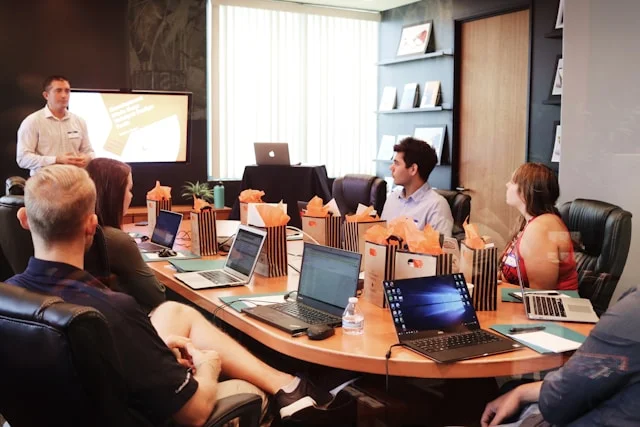
In the wake of unprecedented global events, understanding the main global risks of 2021 has become essential for policymakers, businesses, and individuals alike. The year 2021 saw a myriad of challenges that have had far-reaching implications. This article delves into these risks, analyzing their causes, impacts, and potential solutions. For detailed information, visit https://finanzasdomesticas.com/principales-riesgos-mundiales-2021/.
The Aftermath of the Pandemic: Long-Term Impacts and Recovery
The COVID-19 pandemic, which began in late 2019, continued to dominate global discussions in 2021. The immediate health crisis morphed into a long-term challenge, with economic and social consequences that are still unfolding.
Economic Downturns and Unemployment
The pandemic led to severe economic disruptions. Businesses faced closures, and millions lost their jobs. Governments around the world implemented stimulus packages to counteract these effects, but the road to recovery is long and uneven. As we analyze the main global risks of 2021, the economic fallout remains a significant concern. For more insights, check out https://finanzasdomesticas.com/principales-riesgos-mundiales-2021/.
Public Health and Mental Health Crises
Beyond the physical health impacts, the pandemic exacerbated mental health issues. Lockdowns, social isolation, and economic stress contributed to increased rates of anxiety, depression, and other mental health conditions. Addressing these challenges requires comprehensive health strategies and community support.
Recovery and Resilience Strategies
Countries are focusing on rebuilding their economies and healthcare systems. Resilience strategies include investing in healthcare infrastructure, supporting small businesses, and enhancing social safety nets. These efforts aim to mitigate the long-term effects of the pandemic and prepare for future crises. For further details on global risks and recovery strategies, refer to https://finanzasdomesticas.com/principales-riesgos-mundiales-2021/.
Climate Change: Current and Future Impacts
Climate change remains one of the most pressing global risks. In 2021, extreme weather events highlighted the urgent need for effective climate action.
Extreme Weather Events and Their Consequences
From devastating hurricanes to severe droughts, the impact of extreme weather events was evident throughout the year. These events not only cause immediate damage but also have long-term effects on communities and economies. Addressing climate change requires a global effort to reduce greenhouse gas emissions and implement sustainable practices. For additional insights on climate-related risks, visit https://finanzasdomesticas.com/principales-riesgos-mundiales-2021/.
Resource Scarcity and Environmental Degradation
Resource scarcity, including water and energy, is becoming increasingly critical. Environmental degradation, such as deforestation and pollution, exacerbates these issues. Sustainable resource management and conservation efforts are vital to mitigating these risks.
Mitigation Strategies and Technological Solutions
Technological advancements offer hope in the fight against climate change. Innovations in renewable energy, waste management, and sustainable agriculture play a crucial role in reducing our environmental footprint. Governments and organizations are investing in these technologies to combat climate risks effectively.
Geopolitical Tensions: Global Stability and Security
Geopolitical tensions have been a recurring theme in recent years, and 2021 was no exception. The shifting global landscape presents both challenges and opportunities for international relations.
Major Geopolitical Conflicts and Their Implications
Conflicts in regions such as the Middle East and Eastern Europe have significant implications for global stability. These tensions affect international trade, security, and diplomatic relations. Addressing these issues requires careful diplomacy and cooperation among nations.
Trade Wars and Economic Sanctions
Trade wars and economic sanctions have disrupted global trade networks. Countries impose these measures to protect their interests, but they can also lead to economic instability and strained relations. Finding balanced solutions to these conflicts is essential for maintaining global economic health.
Efforts Toward Global Cooperation and Conflict Resolution
Despite ongoing tensions, there are concerted efforts toward global cooperation. International organizations and treaties aim to address conflicts and promote peace. Collaborative approaches are crucial for managing geopolitical risks and fostering international stability.
Technological Disruption: Challenges and Opportunities
Technological advancements are reshaping various aspects of our lives, presenting both opportunities and challenges.
AI and Automation Impacts
Artificial intelligence (AI) and automation are transforming industries, creating efficiencies but also leading to job displacement. Balancing technological progress with workforce development is crucial. Strategies include investing in education and reskilling programs to prepare workers for new roles.
Data Privacy and Cybersecurity Threats
As technology advances, so do cybersecurity threats. Data breaches and privacy concerns have become prevalent. Ensuring robust cybersecurity measures and protecting personal information are critical for maintaining trust in digital systems.
Technology’s Role in Addressing Global Risks
Technology also plays a significant role in addressing global risks. Innovations in healthcare, environmental monitoring, and disaster response enhance our ability to manage and mitigate these challenges. Leveraging technology effectively can help build resilience against various global risks.
Economic Inequality: A Growing Divide
Economic inequality has become more pronounced, affecting social stability and growth.
Causes and Effects of Economic Inequality
Economic inequality stems from various factors, including unequal access to education, employment opportunities, and resources. The widening gap between rich and poor impacts social cohesion and economic stability. Addressing this issue requires targeted policies to promote fairness and opportunity.
Impact on Social Stability and Economic Growth
Inequality can lead to social unrest and hinder economic growth. A more equitable distribution of resources and opportunities can contribute to a more stable and prosperous society. Policies that address income inequality and provide support to disadvantaged groups are essential.
Policy Responses and Potential Solutions
Governments and organizations are exploring various solutions to address economic inequality. These include progressive taxation, social safety nets, and investments in education and healthcare. Comprehensive approaches are necessary to tackle the root causes and mitigate the effects of inequality.
The Rise of Misinformation: Effects and Remedies
The proliferation of misinformation poses significant risks to public health and trust in institutions.
Impact on Public Health and Trust in Institutions
Misinformation can undermine public health efforts and erode trust in institutions. False information about COVID-19, vaccines, and other critical topics has had serious consequences. Combatting misinformation requires accurate communication and public awareness.
Strategies for Combating Misinformation
Efforts to combat misinformation include fact-checking, media literacy programs, and regulatory measures. Educating the public on how to identify reliable sources and critically evaluate information is crucial for addressing this issue.
Role of Media Literacy and Fact-Checking
Promoting media literacy and fact-checking helps individuals navigate the information landscape. By understanding how to assess the credibility of sources and verify facts, people can make informed decisions and reduce the spread of misinformation.
Future Trends and Predictions
Looking ahead, several trends and predictions are shaping the global risk landscape.
Emerging Risks and Their Potential Impacts
New risks are constantly emerging, including technological, environmental, and geopolitical challenges. Anticipating these risks and preparing for their potential impacts is crucial for resilience and adaptation.
Anticipated Changes in Global Risk Landscapes
The global risk landscape is likely to evolve as new issues arise and existing challenges intensify. Monitoring trends and adapting strategies will be essential for managing future risks effectively.
Recommendations for Preparedness and Adaptation
To navigate future risks, it is important to develop proactive strategies. These include investing in research and development, strengthening international cooperation, and enhancing preparedness for various scenarios.
Conclusion
Understanding the main global risks of 2021 provides valuable insights into the challenges and opportunities facing our world. By addressing these risks through comprehensive strategies and international cooperation, we can build a more resilient and secure future. For more information on the main global risks of 2021, visit https://finanzasdomesticas.com/principales-riesgos-mundiales-2021/.






